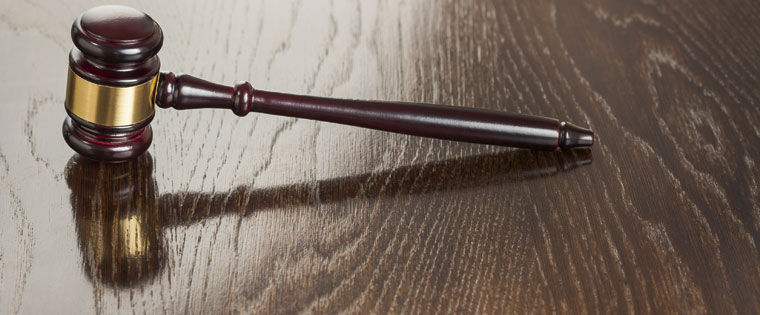
INDIAN RIVER COUNTY — An Indian River County court case before Judge Paul Kanarek of the 19th Judicial Circuit is the first case of its kind in Florida, and the outcome may determine how school districts throughout the state share property tax dollars with charter schools.
The five charter schools in the county school district brought the case more than a year ago, and it has been working its way up through judicial venues, first going to mediation, then to the Division of Administrative Hearings and now to circuit court.
Kanarek first heard the charters’ request for immediate action, in which they sought a temporary injunction that would have forced the school district to at once start sharing property tax revenue on an equal, per-student basis, claiming that a delay in the additional funding would cause irreparable harm.
The school board’s attorney, Vivian Cocotas, argued the charters had not proved irreparable harm, which by legal definition, cannot be fixed by money. Yet the charters are asking for money, she said, as a solution to their teacher-retention and other problems.
Cocotas also questioned the timing of the suit, brought two years after the tax went into effect, undercutting the charters’ argument for immediate action now when they failed to complain earlier.
After hearing the district’s counter arguments, Kanarek last Wednesday denied the charters’ request, stating they had not proved that irreparable harm would result from a delay, nor met other standards required for an injunction.
Now the charters’ additional complaints will be considered by the judge, including the claims that there has been a breach of contract by the district and that the school board’s unequal disbursement of tax money is illegal.
The charters’ attorney, Shawn Arnold, said “The parties have several options [going forward]. We’re still in the middle of discovery and we haven’t had a status conference on the other complaints.”
The only school board member who chose to comment on the case, Shawn Frost, also was the only board member to vote against the court fight.
“This is just the beginning of what will likely be a very protracted and expensive legal battle,” Frost said. “I personally remain concerned with the amount of money the district spends each year on legal actions and would rather see those dollars working to educate students in our classrooms.”
Gene Waddell, spokesman for the charters and chairman of the Indian River Charter High School Board, said he wasn’t surprised they lost the first round. To prove irreparable harm, “we had to show we were in dire financial condition. If you do that, you are setting yourself up for endangering your charter with the district [on the basis of financial incompetence or insolvency].”
Beleaguered charter school administrators walked that tightrope while giving testimony. They told stories of the district hiring away their teachers, inducing them with higher salaries, making it difficult to meet academic goals.
They claimed they were duped into thinking they were getting a fair share of the tax levy, and said even a whiff of insolvency or failing to meet academic goals would give the school board an excuse to yank their licenses to operate – even if the problems were caused by the district withholding needed funds.
The charter schools want about 13 percent of the revenue from a 60-cent tax levy passed several years ago, which represents their portion of the student population, not the 5 percent they have been given. They claim irreparable harm has been done to their students by the funding shortfall and say that every day money is withheld creates further harm, because each student-year presents a unique educational opportunity that can never be regained.
The tax began July 2013 and ends June 2017. Voters, during the Aug. 30 primary, approved an extension of the special levy for another four years. This referendum guarantees charter schools will get an equal per-student share of the funds, beginning in 2017 – which is the remedy the charters want applied retroactively and going forward until the new levy kicks in.
In the past three years the district has collected about $26 million from the 60-cent tax and has given the charter schools about $1.3 million, which is about $2 million short according to the charters, not including interest.
Cocotas disputed the charters’ allegations. She said the school district held a town hall in 2012 to inform the public why it needed the money the 60-cent property tax would produce. Three charter school administrators attended and “were on notice,” she said, that they would get 5 percent of the revenue, not a per-student share.
Both sides hired experts on school funding who interpreted various laws differently.
The charter schools’ expert, Dr. Andrew Binns, said the “discretion” given by law allows the school board to decide whether to put the levy on the ballot, but if passed by voters, it must be disbursed on a per-student basis.
The school board’s expert, Dr. Craig Wood, said the law gave school boards no authority to share any of this particular levy’s revenue with charter schools, calling into question the legality of Indian River County School Board having shared 5 percent of the proceeds so far.
This is the first time a case arguing charter schools’ rights to property tax revenue has been heard in Florida, so whatever Judge Kanarek decides will set a precedent that likely will have impact throughout the state.



